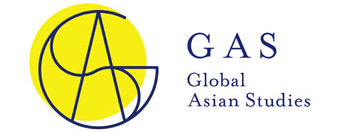The "Tokyo School" project 1st workshop "Conceptualizing Asia" was held
| Workshop Title: | Conceptualizing Asia |
|---|---|
| Title and Speaker: | "The Internalized Gaze of ‘Asia’: The Debate on the Asiatic Mode of Production and Ishimoda Sho." Professor Jun’ichi Isomae, International Research Center for Japanese Studies "Knowledge of Tokyo Imperial University in Colonial Korea: Unokichi Hattori and the Establishment of Keijyo Imperial University." Professor Toshihiko Matsuda, International Research Center for Japanese Studies |
| Date and time: | June 15, 2018 (Fri.), 2:00-6:00PM |
| Venue: | Main Meeting Room (3F), The Institute for Advanced Studies on Asia, University of Tokyo |
| Language: | Japanese |
Tokyo School Workshop Report
The first workshop “Conceptualizing Asia” of the JSPS-funded research project “The Tokyo School” was convened at the Institute for Advanced Studies on Asia of the University of Tokyo on June 15. Prof. Nakajima Takahiro, the project leader, started the workshop with an introduction of the project. Two professors from the International Research Center for Japanese Studies, Isomae Jun'ichi and Matsuda Toshihiko, each gave a one-hour lecture. They then engaged in stimulating discussions with five professors of the University of Tokyo. The workshop concluded with a short Q&A session with the audience.
Bringing in Said’s Orientalism and Jacques Lacan’s analysis of mirror stage and subject, Prof. Isomae traced how Japanese scholars, especially the historian Ishimoda Sho, engaged with the Marxist concept of the “Asiatic Mode of Production” in prewar and postwar Japan and how they tried to overcome the contradictions inherent in the concept to construct sensible definitions of Asia and Japan. Prof. Matsuda explored the research and life of Hattori Unokichi, professor of Toyo history of the Tokyo Imperial University (TIU) and the first president of Keijo Imperial University (KIU) in colonial Korea. His lecture revealed the connection between TIU and KIU in terms of transfer of knowledge as well as the apparatus of knowledge production on one hand and the connection between knowledge production and colonial rule.
The workshop generated productive discussions on how knowledge was generated at TIU and circulated beyond the nation-state framework of Japan, and how in that process “Asia” came to be discursively constructed. How to situate Asia and Japan in the modern knowledge structure in which “Asia” and “Japan” were objectified for study by the West has been a multi-layered inquiry in East Asia. This workshop not only problematized this inquiry to be a research topic but also developed in-depth discussion about it.
Pictures of the workshop



